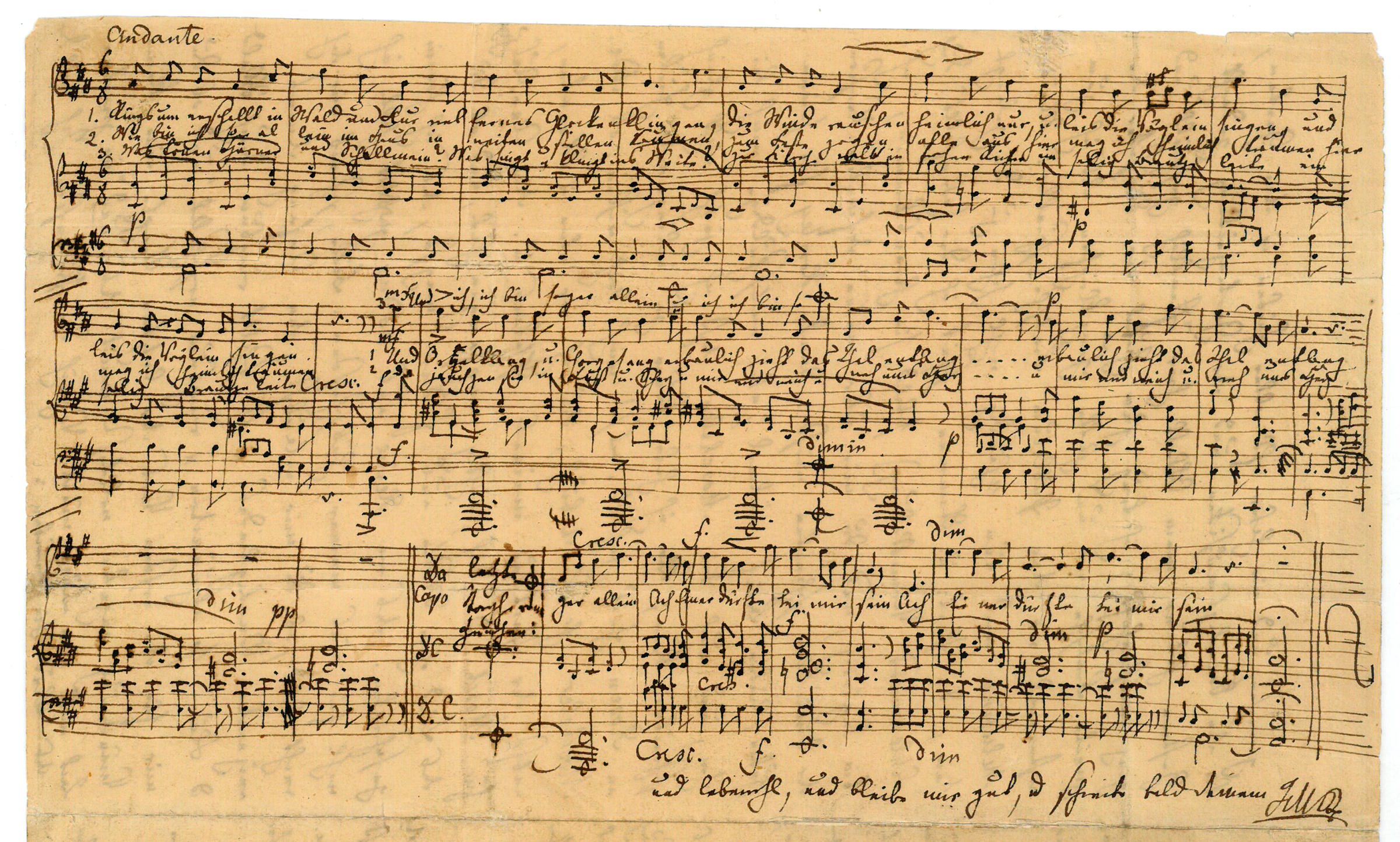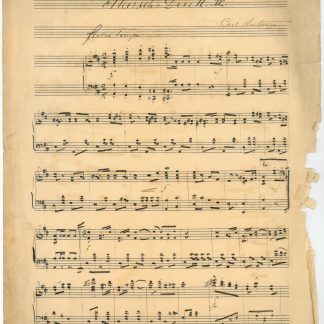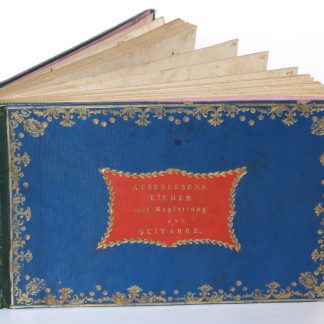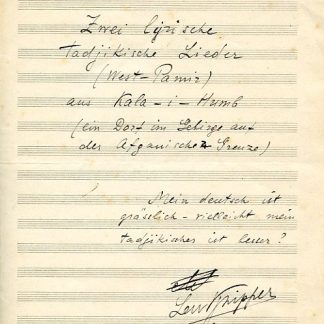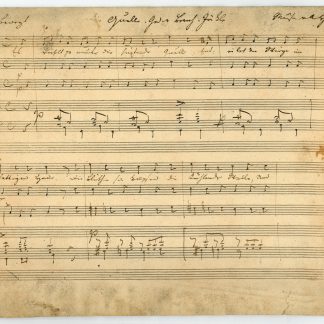[SOLD]
This item has sold. We are always interested in acquiring another copy or any item of comparable quality.
"My heart beat higher when I played the viola before an audience for the first time"
Autograph letter signed ("FMB") with full-page musical manuscript of the "Sonntagslied".
8vo. 4 pp. on bifolium, comprising 3 pp. of text and 1 p. of musical notes. In German.
Fine, important letter to his close friend Karl Klingemann (1798-1862), in which the composer and Kapellmeister, recently removed to Leipzig, gives an account of his new circumstances and invites his friend to visit him and the Lower Rhenish Music Festival: "I have repeatedly been quite cheerful and gay again, but it never would last, and then I only felt all the sadder. The only thing that does me any good is being occupied, and so my position here is in fact beneficial, as I must produce music every eight days, and sometimes even rather good music. Also, the people in Düsseldorf are starting to press harder about the Music Festival; in a few days I must send the first part of St Paul to Simrock for printing [...]". Between 1833 and 1846, Mendelssohn would serve as director of the Lower Rhenish Music Festival no fewer than seven times. At the 18th Festival of 1836, he also conducted the first performance of his oratorio "St Paul".
Mendelssohn sends greetings from their common friend, the politician and organist Friedrich Schlemmer ("we see each other often and enjoy doing so"), and asks Klingemann to apologize for him to the composers William Horsley and Ignaz Moscheles "for being unable to write directly; I have hardly had the time for the enclosed lines to Rosen". Sophie Rosen (1822-1901), half-sister of the linguist and Sanskrit scholar Friedrich August Rosen, would marry Klingemann nine years later.
Mendelssohn also reports on a most agreeable newcomer, the violin virtuoso Ferdinand David: "Surely you remember little David, Mme. Dulcken's brother; now he is here, but fully grown and an upstanding, good musician, and he may be hired by this orchestra as principal violinist; his good spirits and his fine violin tone, which is much reminiscent of Ri[e]tz, have been a great comfort and pleasure to me lately [...]". A few years later, Mendelssohn would give a memorable concert with the pianist Louise Dulcken in London, performing Mozart's duet for two pianos - "perhaps the greatest treat of the concert, both pianists vieing with each other in giving the most exquisite softness and elegance of expression to the graceful inspirations of Mozart" ("The Times", 12 June 1844, p. 7).
Finally, Mendelssohn inquires whether Mr. and Mrs. Moscheles have received the song book "that I sent him about two months ago, together with the score of my Psalm and the piano reduction for him and you", and whether he like "the Song Without Words in F major that I wrote in it. The Heine piece in A flat major I feel must be one of my prettiest. Please, do write me soon whether you might permit me to change the begining of you charming 'Sonntagslied', 'Es schallt ringsum durch Wald u. Flur', to read, 'ringsum erschallt' [...]".
Mendelssohn's "Sonntagslied", set to words by Klingemann, is scored in full on the fourth and final page of the letter, comprising words, music for voice, and piano accompaniment in three lines of three staves.
Published in: K. Klingemann (ed.), Felix Mendelssohn-Bartholdys Briefwechsel mit Legationsrat Karl Klingemann in London (Essen, 1909), p. 197f., reproduced in full on two plates printed on both sides.


